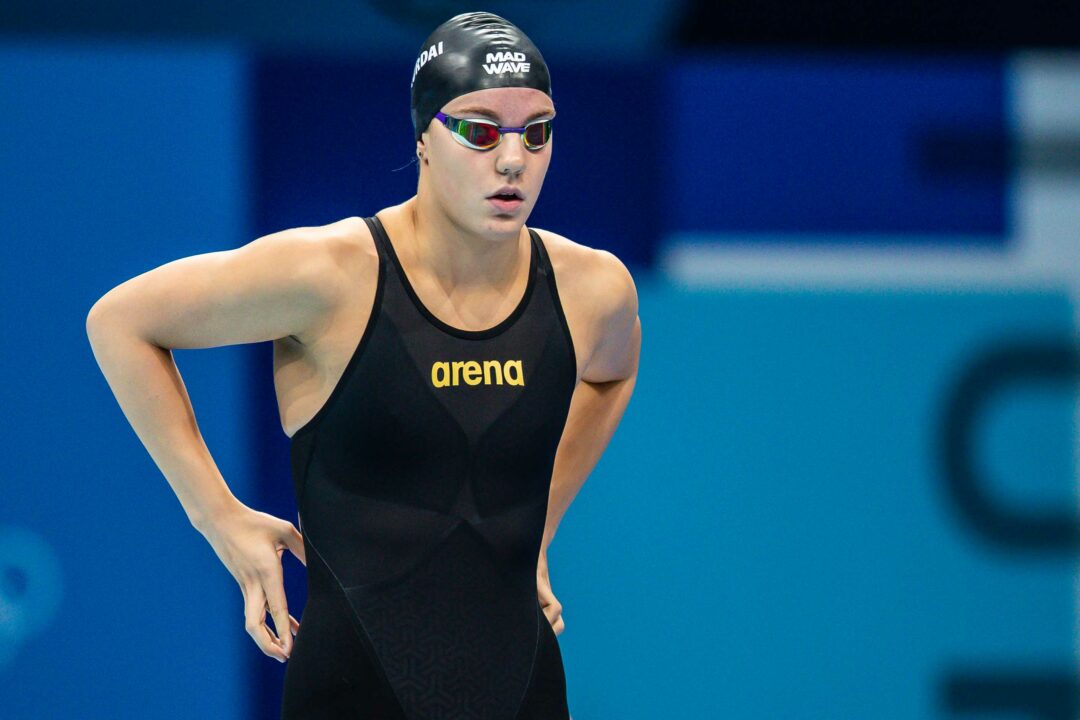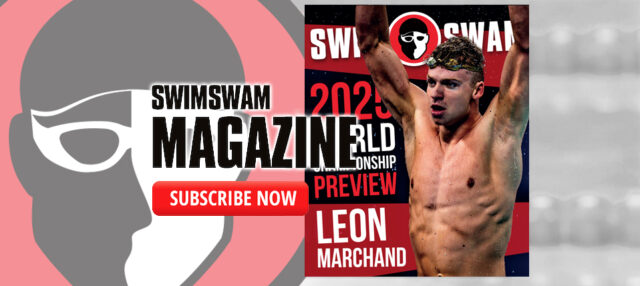The International Olympic Committee has extended invitations to four Russian and Belarusian swimmers to compete in the Paris 2024 Olympic Games as neutral athletes.
Russian swimmer Evgenii Somov and Belarusian swimmers Alina Zmushka, Ilya Shymanovich, and Anastasiya Shkurdai are all listed as “eligible and invited athletes” with a Russian or Belarusian passport.
Russia and Belarus have been formally barred from the Olympic Games after the countries collaborated on a 2022 invasion of neighboring Ukraine that has so far caused hundreds of thousands of casualties.
Russia appealed the banishment to the Court of Arbitration for Sport, but it was upheld not on the grounds of the CAS taking a stance on the war, but rather on the basis of Russia annexing Ukrainian sporting organizations, which it determined to be a violation of the Olympic Charter:
“An NOC can only exercise territorial jurisdiction within the limits of the boundary of an independent State recognised by the international community.
“It follows that, if the international community recognises the Regions as part of Ukraine, then the ROC’s decision to admit sports organisations from those regions as members violated the territorial integrity of the Ukrainian NOC, as protected by [Olympic Charter] Rule 28.5 and Rule 30.1.”
The IOC did offer an avenue for individual athletes (not teams) to participate in the Olympic Games, however, under the moniker of “Individual Neutral Athletes,” also referred to as “AINs” via the acronym for the same phrase in French.
The application of neutrality rules was largely left up to the sporting federations, and there were other athletes approved who ultimately were not chosen as qualifiers.
That includes US-based Russian swimmer Yulia Efimova, who did not hit an Olympic Qualifying Time, Belaursian swimmer Anastasiya Kuliashova, Belarusian swimmer Grigori Pekarski, and Belarusian swimmer Ruslan Skamaroshka.
They also approved neutrality for three Belarusian artistic swimmers, including one for so-called ‘High-Risk World Aquatics competitions’ like the Olympic Games: Vasilina Khandoshka. There are no solo events in synchronized swimming at the Olympic Games, though she would be eligible for the World Championships, for example.
No divers, water polo players, or artistic swimmers were approved and invited.
“The AIN quotas were determined on the field of play through the existing qualification competitions and the specific eligibility requirements of the International Federations (IFs),” the IOC said.
Among the requirements for athletes to participate as neutrals is signature of the same Conditions of Participation as all athletes competing at the Games, which “contains a commitment to respect the Olympic charter, including “the peace mission of the Olympic Movement.”
While the document has been described as a “declaration of neutrality,” it doesn’t mention Russia, Belarus, or the war in Ukraine specifically, and is signed by all athletes participating in the Olympic Games. The document also contains clauses requiring athletes to agree to social media guidelines, not manipulate competition, and follow anti-doping rules.
Additional rules for neutrality also preclude athletes from participating if they have publicly spoken in favor of the war, as was the case for Evgeny Rylov, or if they are affiliated with the Russian or Belarusian military, which is the case for many Russian athletes who train with one of the country’s most successful athletic clubs that is affiliated with the country’s military.
All four swimmers deemed eligible to compete by the IOC have hit Olympic Qualifying Times in the qualification period.
Evgenii Somov became a surprise contender in the men’s 100 breaststroke in May in Atlanta when he swam a Russian Record of 58.72 at the Atlanta Classic. He had previously never broken a minute in that race.
Anastasia Shkurdai won a bronze medal in the 200 back at the lightly-attended World Championships in 2024.
Ilya Shymanovich is the current World Record holder in the 100 breast in short course meters and has been as fast as 58.29 in long course. That swim was in 2019, though a 58.41 in April 2023 showed that he is still capable of fast swims as he approaches his 30th birthday.
Alina Zmushka is another breaststroker who in 2023 went a best time of 1:06.44 in the 100 and at Worlds this year swam 2:24.14 in the 200 breast in the semi-finals.
As of July 3, 43 athletes (27 Russian and 16 Belarusian) are still eligible for the Games, having been both invited and either accepting, or not yet declining, a spot in the Games.
| Russia | Belarus | |
| Road Cycling | 3 | 1 |
| Gymnastics – Trampoline | 1 | 2 |
| Taekwondo | 1 | 0 |
| Weightlifting | 0 | 2 |
| Wrestling | 9 | 1 |
| Rowing | 0 | 2 |
| Shooting | 0 | 2 |
| Tennis | 6 | 1 |
| Canoe | 2 | 2 |
| Judo | 4 | 0 |
| Swimming | 1 | 3 |
| Total | 27 | 16 |
14 invited athletes, including 6 of the 7 invited Belarusian wrestlers, declined their participation. It is unclear whether the athletes are receiving funding to attend the Games or not. Among the high profile athletes to decline a spot include Belarusian tennis player Aryna Sabalenka, a former World #1-ranked player and four-time Major Champion, in spite of speaking publicly against the war and Belarusian president Aleksandr Lukashenko. Earlier in her career, she had made political statements in support of Lukashenko, causing controversy at home.
Russian officials have repeatedly said in public that it is up to the athletes to decide if they want to participate in the Games.


“Anastasia Shkurdai won a bronze medal in the 200 back at the lightly-attended World Championships in 2024.”
Lightly-attended? I’ve never seen that phrase used for any other medal winner from Doha in SS articles. There was a 50-100-200 winner and multiple other winners that were not described that way.
Would be awfully lame if we repeated the same phrase over and over again wouldn’t it?
I couldn’t tell you exactly what phrasing I’ve used every time, but I’ve definitely acknowledged the deficiency of 2024 Worlds in articles before.
I quite like the phrase.
Ok.✊🏾😂
I’m not disputing the legitimacy of the phrase, I haven’t seen an asterisk put on the Doha medalists that much
I read swimswam a lot and they have very often mentioned that the 2024 Worlds were missing many top swimmers. They might not have used this phrase though but I don’t think it’s poor phrasing.
I mean, it’s the truth.
And I’m at Swimswam basically every day and I’ve seen them used the phrase before.
Does anyone have any insight about Somovs coach piankhi gibson? I know he swam at auburn and has a program called aquabred but that’s about it.
I am a Somov supporter
The sprint back half frog king!
Sad noises in Evgeniia Chikunova
Will Somov medal?
No.
I really hope so. He coaches age group swimmers at a very small pool in the East Bay of California – it would be awesome for someone from a tiny program like Albany Aquatics to make the podium.
I will never understand this. What is the difference between Russia in 2024 and the US post-Iraq in Athens 2004?
The CAS distinction is described in the article.
Russia annexed Ukrainian sporting organizations, which is a pretty-explicit violation of the Olympic Charter. The CAS agreed.
The US did not annex any Iraqi sporting organizations.
The IOC and the Olympic Charter try really hard to not get involved in geopolitics, but they do try and contain matters of sport.
Thing is the timeline of the ban doesn’t make sense if Russia were banned for annexing Ukrainian sports organisations. IOC first called for the ban not long after the invasion which was a long time before anything was annexed. I can only conclude that annexing sports organisations isn’t required for a country to be banned and an illegal invasion is enough to trigger a ban so the US should’ve also been banned.
I agree that there is some inconsistency in the timeline. If they hadn’t made the calls early, I think they still would have wound up with the Olympic ban anyway in 2023.
I also think that “calling for them to be banned from international sporting events” is different than “actually banning them from the Olympics,” both pragmatically and legally. The Olympic Charter doesn’t apply to, say, the World Cup. I guess you could make a legal argument about the “call to ban” was sort of pre-emptory to the actual ban, but I’m not a lawyer.
No punishments were actually leveled until they annexed sporting organizations:
https://swimswam.com/russia-recognizes-regional-swimming-federation-within-controversial-crimea/
https://swimswam.com/ioc-suspends-russian-olympic-committee-for-absorbing-ukrainian-sports-organizations/
That being said, Russia would… Read more »
I get it. Rulings aside, I still think it is unfair to punish athletes based off the actions of their governments.
In your opinion, which is less fair?
Russian athletes being punished based off the actions of their governments or Ukrainian athletes being punished based off the actions of Russia’s government?
‘A is less unfair than B’ doesn’t make A more justified.
Now apply the same logic to the US invasion of Iraq.
But the USA didn’t violate the Olympic Charter. I agree that both are tragedies…but you’re creating a false dichotomy of logic.
Russia was banned from sports long before they violated the Olympic charter. Numerous global sports organisations banned Russia from sports in early 2022. No global sports organisations banned the US because of the Iraq invasion.
That’s a different matter than the one at hand though, right?
This decision was made by the IOC about the Olympics.
Russia didn’t appeal World Aquatics’ decision, for example, to ban Russia from the World Championships. I would be curious to see how that would come out if it happened.
I don’t really have a strong personal opinion on whether Russia now (or the US in 2004) should have been allowed to compete, because I think there is merit in both sides of each argument. My interest is more in the consistency and justification for all of it, and from where I sit, it seems like they’ve successfully parsed the apple.
I find them to be quite interrelated because Olympic qualification is dependent on not being banned from the relevant global federations. Most of these bans have been lifted now but it shows that it’s possible to effectively block a country from competing at the Olympics without them first violating the Olympic charter.
And besides the double standard still exists: the US was not banned from anything at all for Iraq and we all know they could do the same thing again and not be banned. This kind of bias should have no place in global organisations. They should remain completely neutral.
Russian swimmers all had a pathway to compete though. Which doesn’t mean they weren’t being punished (no relays, no flags.) but the pathway to compete at least creates a middle ground.
When should US been banned, 2004?
Along with the United Kingdom & Australia too I assume? Since both governments supported & were involved in the invasion?
Seriously? Two completely different scenarios.
No Rylov Kolesnikov Minakov Prigoda Chupkov…so much talent left out all due to Russia being hellbent on this war…
Men’s 100 breast prediction:
Gold – Peaty, Silver – Qin, Bronze – Somov
Kliment Kolesnikov please
as long as he supports ukraine